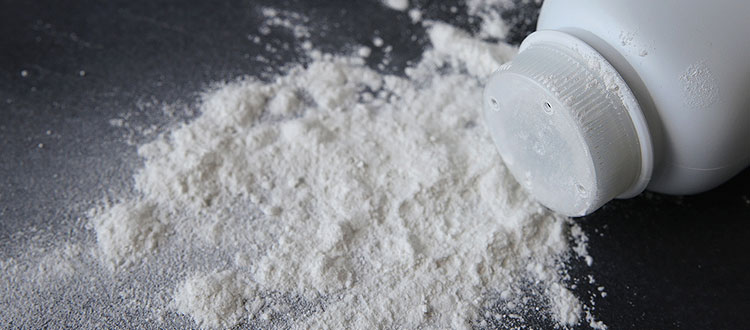Black Lives Should Matter in the Medicine Cabinet, Too
 |
| M. Isabelle Chaudry, Esq. of National Women’s Health Network & WVE board member |
Johnson & Johnson’s CEO pledged to address racism and stand in solidarity with the Black Lives Matter movement. But coming from J&J these words ring hollow. Targeting Black communities with predatory marketing for products linked to cancer is not a sign that Johnson & Johnson cares about the Black community. If it did, the company would commit to addressing the harm of their products.
On May 19th, Johnson & Johnson announced they will discontinue production of its talc-based baby powder in the United States and Canada. This announcement comes after multiple allegations, lawsuits and an eventual $2.1 billion settlement to plaintiffs who claimed that J&J’s talc-baby powder product caused their ovarian cancer. The courts agreed stating “plaintiffs proved with convincing clarity that defendants engaged in outrageous conduct because of an evil motive or reckless indifference.”
Unfortunately J&J’s reckless indifference continues — as does the company’s history of targeting and marketing its products to historically marginalized communities. For while J&J’s US and Canadian productions of talc-based powder comes to a halt, the company will sell existing stock to retailers here until it runs out— and will continue selling its products abroad, particularly in predominately Black and Brown communities like Africa, where it has operations in South Africa, Ghana, and Kenya, and in Brazil, which is home to all three of its business segments.
For decades, the company’s own scientists were raising red flags about this product, concerned that the talc in Baby Powder could be tainted with asbestos, known to cause health issues including cancer and mesothelioma. Mesothelioma is a rare, aggressive form of cancer that develops in the linings of the lungs, abdomen or heart. Note that exposure to asbestos is the only known cause of malignant mesothelioma. More than a decade ago, in 2006, the world’s premiere cancer research group, the International Agency for Research on Cancer (IARC), classified cosmetic talc as “possibly carcinogenic.
Despite these warnings, Johnson & Johnson’s not only continued to sell its talc-based baby powder — it egregiously sought out new ways to sell more of it to African-American women. For many Black women, including myself, the use of talcum powder—especially Johnson & Johnson Baby Powder—has long been a daily part of their self-care routine. Understanding these cultural norms, Johnson & Johnson engaged in aggressive, targeted marketing tactics among Black women for years, without disclosing the potential risks associated with use.
The company’s internal 2006 marketing plans included a focus on “under developed geographical areas with hot weather, and higher AA [African American] population.” And in 2008, two years after the IARC classification, Johnson & Johnson sought marketing proposals from an “African American agency” for the company’s baby products line, including Baby Powder. That same year, the company contracted with a North Carolina marketing firm, Segmented Marketing Services Inc. to distribute 100,000 gift bags containing Baby Powder and other Johnson’s baby products in African American and Hispanic neighborhoods in Chicago.
The impact on these communities is painfully clear: A 2016 study of African American women who used powder for vaginal use had more than a 40 percent increased risk of cancer. Research also demonstrates that African American women who reported regular use of body powder were at greater risk for ovarian cancer compared to their peers who didn’t use talc.
On March 12, 2019, the subcommittee of the House Committee on Oversight and Reform heard moving testimony from the son of Jacqueline Salter Fox, a Black woman, who died from ovarian cancer linked to talcum baby powder. Johnson & Johnson’s CEO Alex Gorsky must have heard this testimony well before joining the chorus of Fortune 500 executives pledging to address racism and concurring that they, too, believe Black lives matter. Coming from Gorsky these words ring hollow. Black lives matter. But targeting Black communities with predatory marketing for products linked to cancer is not a sign that Johnson & Johnson cares about the Black community. If it did, the company would commit to addressing the harm of these products.
Make no mistake, Johnson & Johnson’s decision to continue to sell their products abroad should not be taken lightly: J&J knows the potential dangers of their product and knows these products will continue to disproportionately harm historically marginalized communities abroad. That’s why we need to speak up.
The Food & Drug Administration (FDA) does not have the authority to ban these harmful products or require manufacturers to stop selling them. Congress must provide the FDA with the authority to regulate these products and legislation that includes protections for consumers against talc-based products. As well, international NGOs and foreign governments must make efforts to regulate these products. If we truly believe Black lives matter, we must demand a total discontinuation or ban of all talc-based body care products to protect our sisters around the world.
M. Isabelle Chaudry, Esq., human rights advocate and Senior Policy Manager, National Women’s Health Network and WVE board member.
A version of the article was originally published on July 7, 2020 in the Columbia Daily Tribune.
————————————————————
WVE is one of hundreds of organizations to join Black Women for Wellness in demanding that Johnson & Johnson immediately suspend production and sales of its talc-based baby powder worldwide. To read this letter and view supporting organizations, click here.





